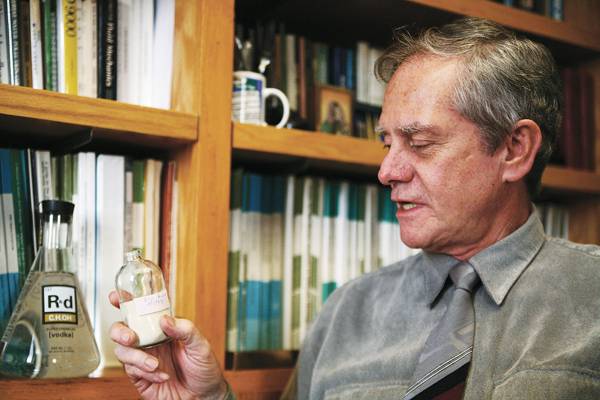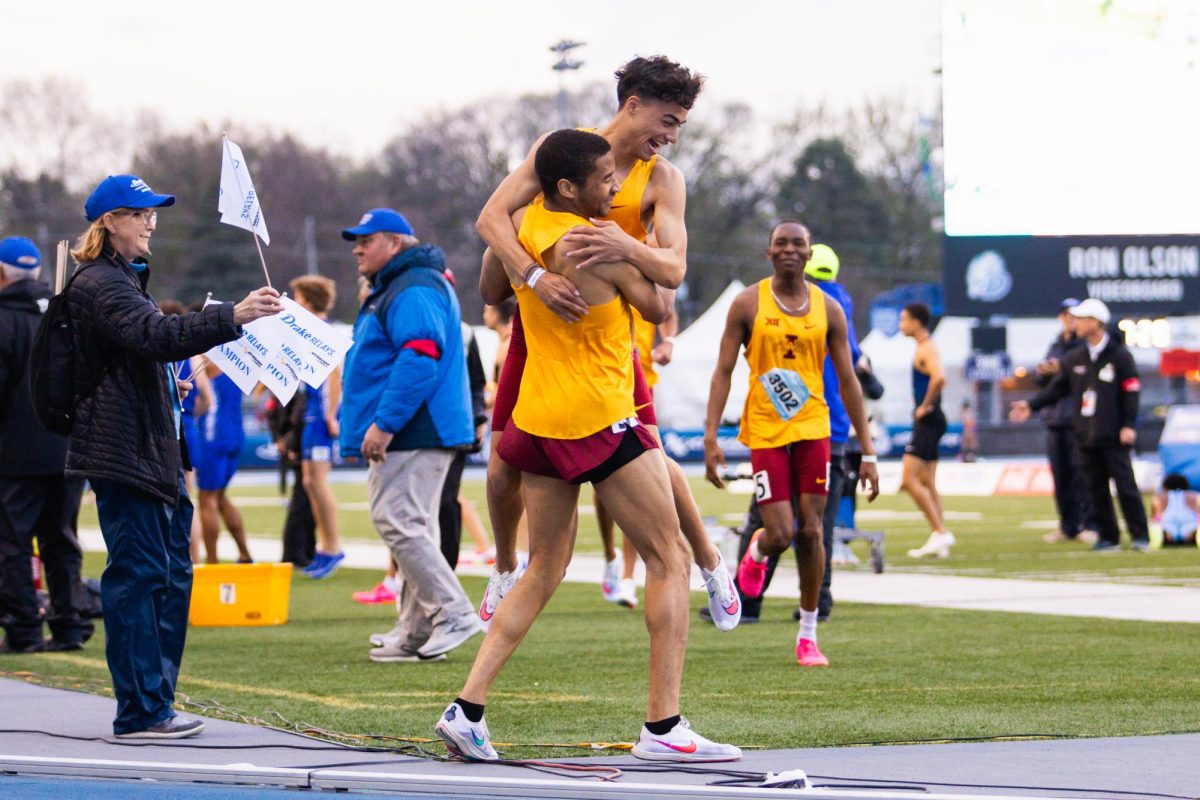Professor wins innovation awards

Hans Van Leeuwen, professor of civil, construction and environmental engineering, talks about dried fungi containing essential amino acids, at his office in Town Engineering building Friday, November 20, 2009. Leeuwen was awarded back to back R&D 100 awards for biofuels development. Photo: Jay Bai/Iowa State Daily
December 1, 2009
R&D Magazine’s Innovator of the Year award has honored some of the world’s richest and most creative people.
Dean Kamen, inventor of the Segway Personal Transporter, and Larry Page, co-founder of Google, have received the award. This year the prestigious Innovator of the Year award goes to an ISU professor, Johannes Van Leeuwen. He received the award for his lifetime achievement and work to benefit the environment.
“I about jumped out of my skin,” said Van Leeuwen, professor in civil, construction and environmental engineering. “It fills you with joy and pride. At the same time, of course, I felt somewhat humbled.”
Van Leeuwen’s research projects at Iowa State focus on using microorganisms to improve the world.
His interest in microorganisms started when he was young. Van Leeuwen’s journey began with brewing beer and making yogurt. Like his life, his work focuses on aiding the environment. He starts each day with a bowl of his homemade yogurt and a bike ride to campus for work.
“That’s who I am,” Van Leeuwen said. “I mean, I’m an environmental engineer and a biological engineer.”
Over the years, Van Leeuwen has worked on several research projects: Water reclamation, the purification of vodka and two conversion processes called MycoMax and MycoFuel. Each of these processes received R&D Magazine’s R&D 100 award, another prestigious award.
As with any other research project, Van Leeuwen had several people helping him. He said his work has been a team effort.
“I could not have done it without the excellent help of colleagues and graduate students,” he said. “So, there’s a whole team of people that contributed to this.”
However, Van Leeuwen serves not only as the leader of the team, but acts as the team’s inspiration.
“He always has a positive spirit, which really helps, because not always do your experiments work,” said Debjani Mitra, a Ph.D. student in biorenewable resources and technology and food science. “It really matters what your relationship is with your major professor, and he’s kind of your mentor. He’s your guardian here, and even if it’s not a lab problem or a science-related problem. I’ve even gone with my personal problems to him, and he’s always found out a way to help me.”
Mitra is one of the graduate research assistants on the MycoMax and MycoFuel research projects.
The MycoMax process was the first of Van Leeuwen’s research projects to receive the R&D award. The process uses waste from ethanol plants to grow fungi. The fungi then make pellets that can be used to make a high quality animal feed with a better amino acid mix than most feeds.
Using this process also purifies the water used by the ethanol plant. The waste used to grow the fungi is water with various organic material dissolved in it. After the fungi finish producing the pellets, clean water is left; the ethanol plant doesn’t have to spend money trying to evaporate the water to separate it from the organic material.
The MycoFuel process is like the MycoMax process, but its final product is oil for biodiesel. The process starts with waste crop materials. These materials contain cellulose, which is a sugar useful for growing the fungi needed to produce the oil. First, the cellulose has to be broken down by enzymes. These enzymes are very expensive, so Van Leeuwen introduced other fungi that also break down the cellulose, but at a much lower price. Once the cellulose is broken down, the sugars feed the other fungi, which produce oil.
Van Leeuwen hopes his lifetime of work will not only benefit the environment, but also humanity as a whole.
















